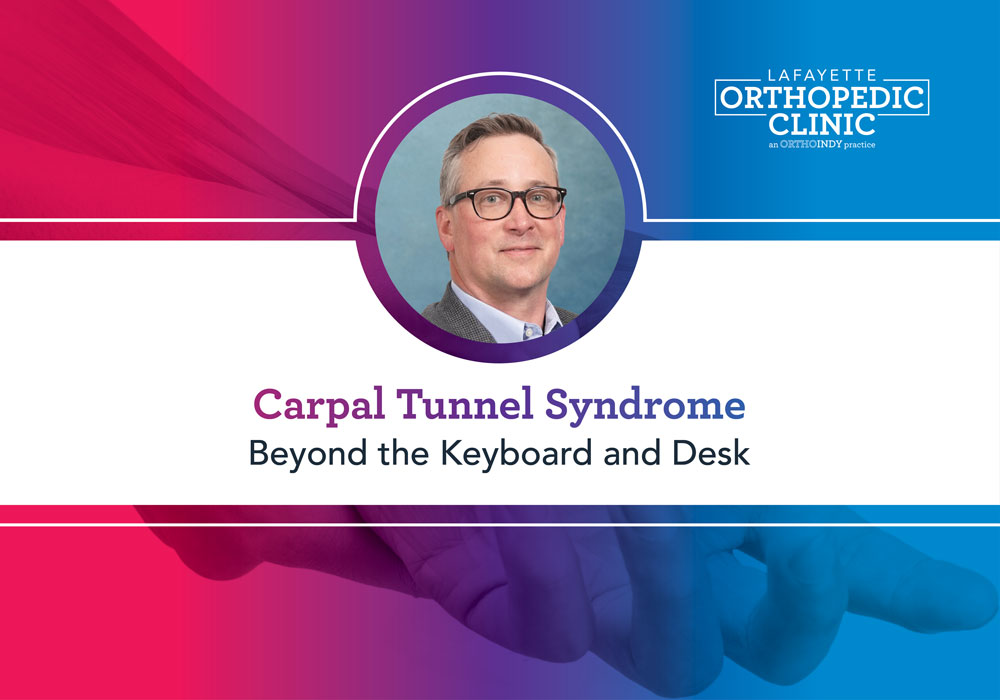When you hear “Carpal Tunnel Syndrome,” you might picture someone typing at a computer. But the reality is, carpal tunnel can strike far beyond the office. Those of you who work in construction, manufacturing and other hands-on professions are often at greater risk.
“Carpal tunnel isn’t just about typing – it’s about repetitive strain and awkward wrist positions,” says Dr. Rini Mathew, physician at Franciscan WorkingWell in Greenwood. “Jobs that involve forceful gripping, repetitive tool use or exposure to vibration, like construction, assembly line work or even hair styling, carry higher risks than desk jobs.”
Carpal tunnel syndrome occurs when the median nerve, which runs from your forearm to your palm, becomes compressed in the narrow carpal tunnel of the wrist. This leads to symptoms like numbness, tingling, weakness or pain – especially in the thumb, index and middle fingers.
Nighttime pain that wakes you up is a common warning sign. As the condition progresses, you might notice clumsiness, dropping objects or trouble with fine motor skills like buttoning a shirt.
Some people are naturally at a higher risk. Women – especially those aged 45–54 – are up to three times more likely to develop carpal tunnel than men. Hormonal changes during pregnancy or menopause, as well as conditions like diabetes, obesity and rheumatoid arthritis can also increase your risk.
“Early diagnosis and treatment of carpal tunnel syndrome are crucial to prevent permanent nerve damage,” says Dr. John Bauman, an OrthoIndy board-certified hand and upper extremity surgeon. “I recommend to my patients that they come to see me for an evaluation as soon as symptoms appear.”
Treatment usually starts with rest, wrist splints or steroid injections. In more severe cases, a surgical procedure called carpal tunnel release may be needed. “I perform minimally invasive carpal tunnel release surgery, which means less pain, a smaller incision and a faster recovery for patients,” Bauman explains. “Most people can return to normal activities quickly, often within days after surgery.”
The good news, according to Drs. Bauman and Mathews is that early treatment is very effective. Most people recover fully and get back to their normal activities.
But don’t ignore the signs. Whether you’re a hairdresser spending hours cutting, blow drying and styling clients’ hair or working in a job that demands use of your hands for repetitive tasks, carpal tunnel syndrome can affect anyone. If you notice these symptoms, make an appointment for an evaluation. Prompt care can often prevent the need for surgery. Learn more about carpal tunnel syndrome and how to protect yourself at franciscanhealth.org and orthoindy.com.




